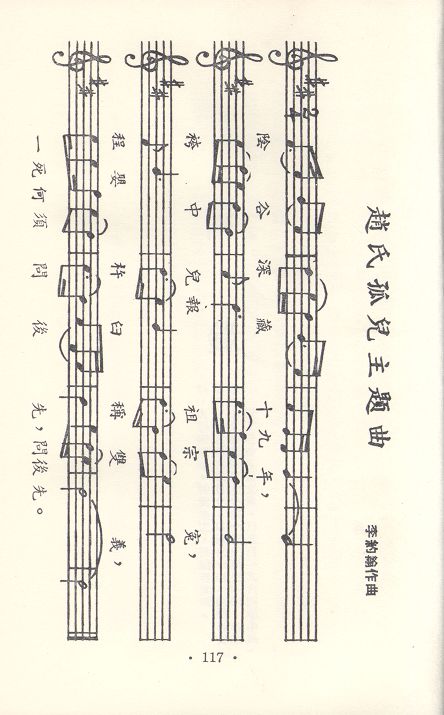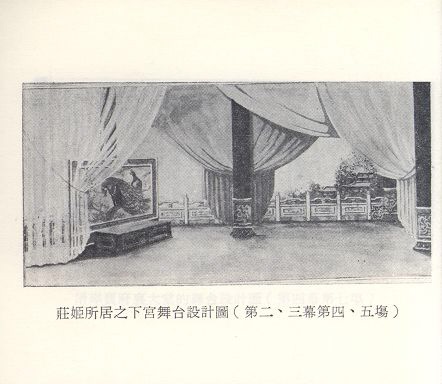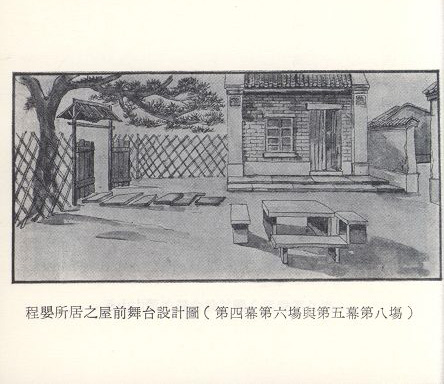|
||
|
||
|
| |||
| 15 MAY 2022 | ISSUE 11 | ||
|
| |||
| 3. Collection Spotlight – Hong Kong Drama Collection | |||||||
|
The Abyss by Yao Ke (a).jpg) (b).jpg) The Abyss – handwritten copy (1961) Yao Ke (1905-1991, also known as Yao Hsin-nung) is an important playwright in Modern Chinese history. In 1948 he moved to Hong Kong and was engaged in film production and screenplay writing. To cultivate talents in drama, Yao also served as the vice-chairman of the Chinese Drama Group, Sino-British Club of Hong Kong. From 1961 to 1967, Yao taught at the Department of Chinese at the United College. Yao’s historical dramas such as Qinggong Yuan (Lament from the Qing Court) and Xi Shi, etc. are still remembered today. He also ventured to write on modern themes that reflected Hong Kong society's situation. In response to the invitation of the Society for the Aid and Rehabilitation of Drug Abusers (SARDA), Yao wrote a script in 1961 to help the Society raise funds for the construction of Shek Kwu Chau Treatment and Rehabilitation Centre, and at the same time promote an anti-drugs message. 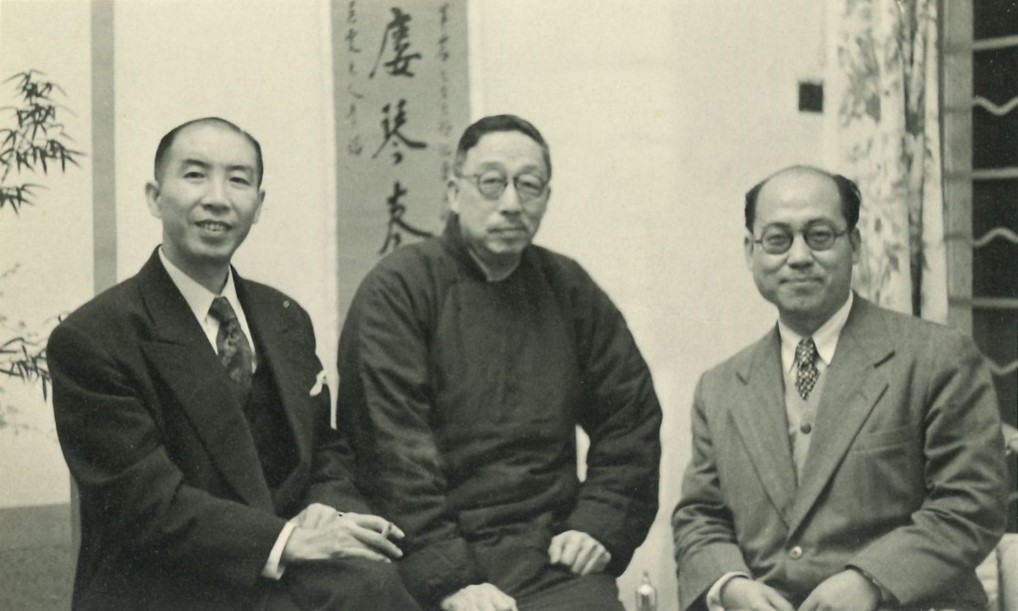 The script Long Cheng Gu Shi (The Story of Kowloon City), renamed The Abyss in the same year, depicted urban slums and drug addiction in Hong Kong. The drama, which premiered in the Hong Kong City Hall in June 1962 and was repeated in 1968, triggered broad public discussion. In addition to extensive media coverage, in the 21st Hong Kong Music Festival Drama Competition in 1969, 10 of the 19 participating teams chose to perform this drama. The CUHK Library has handwritten copies of Long Cheng Gu Shi and The Abyss, as well as a printed copy of The Abyss. The script Long Cheng Gu Shi (The Story of Kowloon City), renamed The Abyss in the same year, depicted urban slums and drug addiction in Hong Kong. The drama, which premiered in the Hong Kong City Hall in June 1962 and was repeated in 1968, triggered broad public discussion. In addition to extensive media coverage, in the 21st Hong Kong Music Festival Drama Competition in 1969, 10 of the 19 participating teams chose to perform this drama. The CUHK Library has handwritten copies of Long Cheng Gu Shi and The Abyss, as well as a printed copy of The Abyss.(From left) Yao Ke (Vice-Chairman), Ma Jian (Chairman), and Hu Chunbing (Vice-Chairman), are founding members of the Chinese Drama Group, Sino-British Club of Hong Kong. 17 February 1953. The Library also has precious collections of Ma Jian papers as well as Hu Chunbing papers. All the Truth by Pao Han-Lin   All the Truth screenplay (1954) Pao Han-lin (1915-2007) is well known to the public for his TV and film roles. In fact, Pao was an active member of the Hong Kong drama circle in his early years. In the 1960s, he served as the chairman of the Chinese Drama Group, Sino-British Club of Hong Kong, and had translated and written many famous screenplays. After the Second World War, Pao worked at the Prisons Department (now the Correctional Services Department) and was sent to the United Kingdom for further studies in 1951. During his time in the UK, he was attracted by the TV programme adapted from James Montgomery's play "Nothing but the Truth", so he bought the script and translated it into the drama "All the Truth”. "All the Truth" is a three-act comedy: in the first act of the story, Law Sze-tun, the owner of a stockbroking business, and Poon Kwok-leung, his business partner who is in love with his daughter Sau-kuen, argue about the subject of speaking the truth. In a heated moment, Sze-tun shouts at Kwok-leung that he will bet him $10,000 if he will speak nothing but the truth for twenty-four hours, and Kwok-leung accepts the challenge. The second act is about the efforts Sze-tun made to make Kwok-leung lose his bet, and Kwok-leung’s insistence almost ruins Sze-tun’s business and his marriage. At the end of the drama, Kwok-leung won the bet and handed over the money to Sau-kuen.
Pao once said that "All the Truth" aroused his strong interest in translating scripts. He later continued to translate several famous plays such as "Her Husband’s Wife" and "Wishes Come True", etc. The play was first performed by Tongji Middle School in 1954 and other schools afterwards and later performed by the Chinese Drama Group, Sino-British Club of Hong Kong. "All the Truth" has a tight plot that the audience's mood ebbs and flows as the clock moves. Hu Chunbing said that in this play he "discovered the omen of the revival of Chinese comedy".
 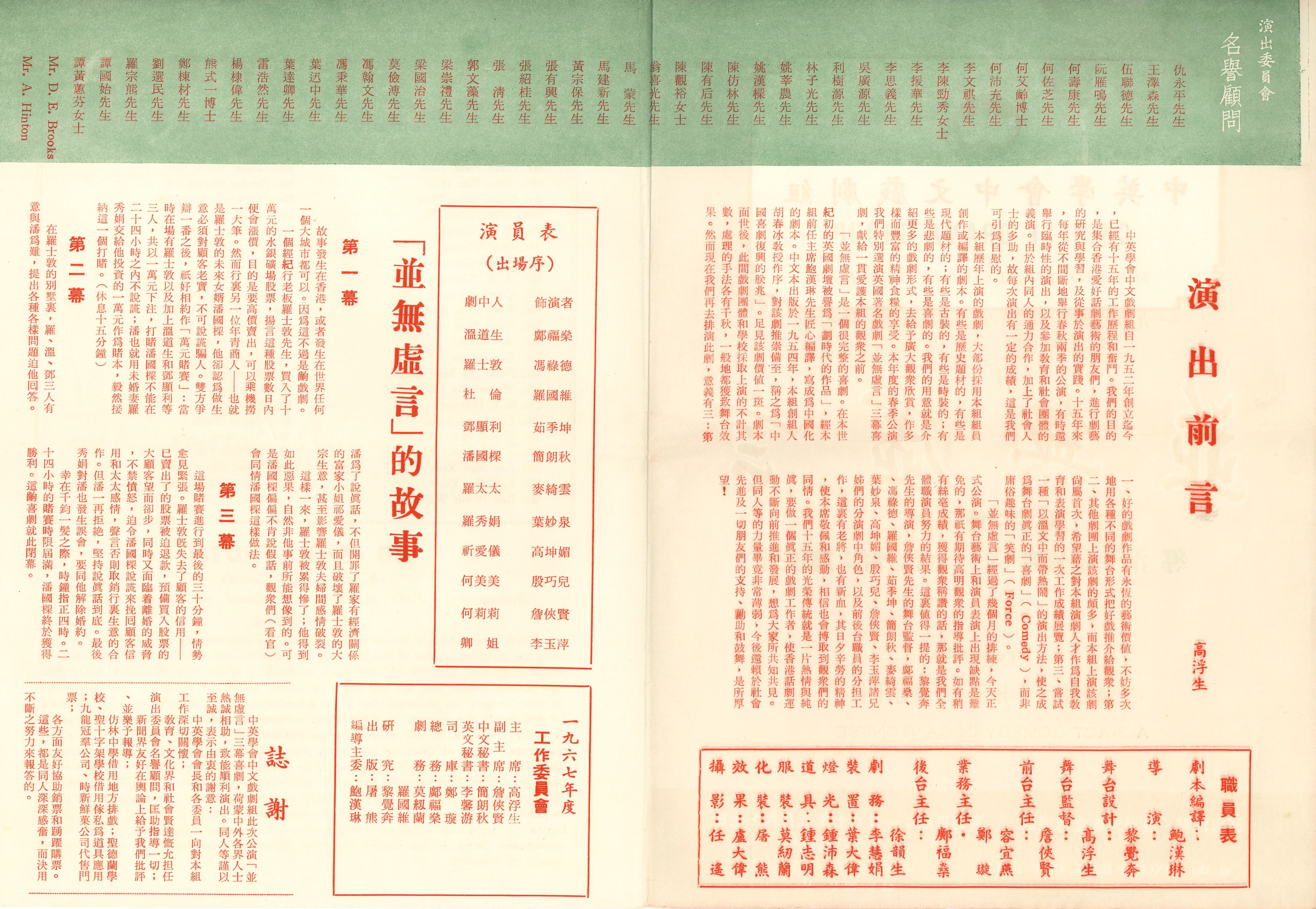 Pamphlet of All the Truth performed by the Chinese Drama Group,Sino-British Club of Hong Kong (1967) The Orphan of Zhao by Gilman Lai 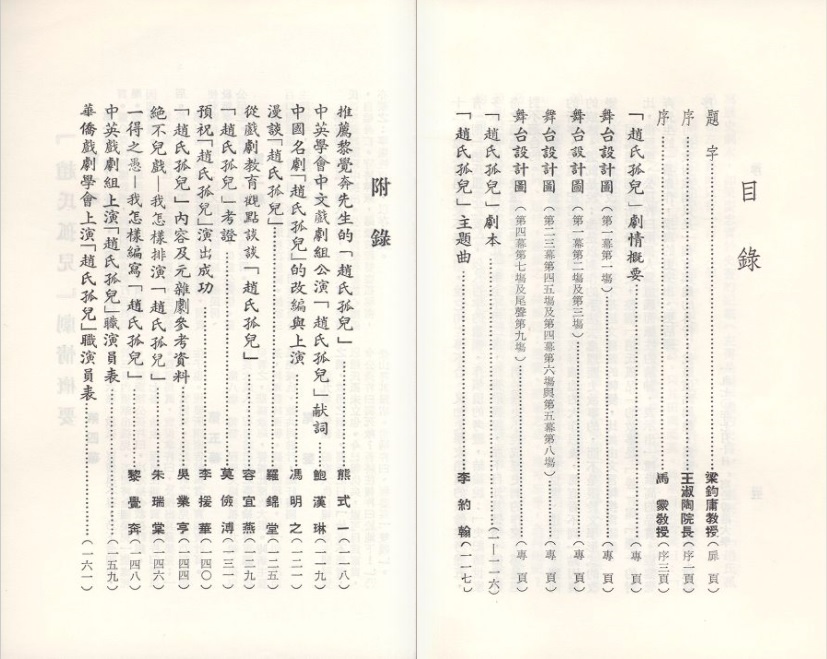 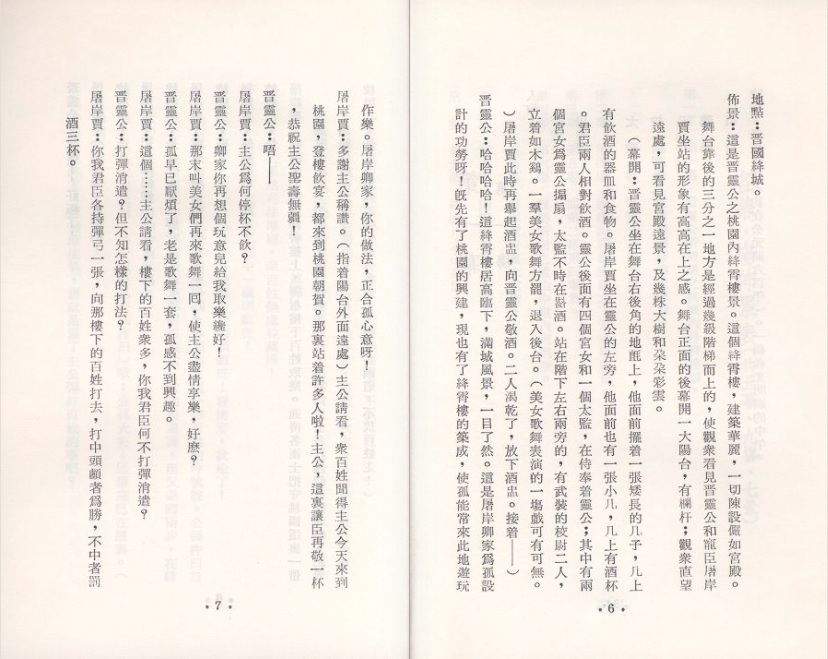 The Orphan of Zhao – A Five-Act Historical Tragedy published by Wah Kiu Drama Club (1970)
Gilman Lai (1916-1992), a graduate of the Art University of China, Shanghai, and professor of Drama of Wah Kiu College, has played different roles in the Hong Kong drama circle, such as director of drama clubs at universities, director of of the Chinese Drama Group, Sino-British Club of Hong Kong, director of the Hong Kong Repertory Theatre, chairman of the Hong Kong Drama Club, etc. He has also written about 20 drama scripts such as Dream of the Red Chamber, Hua Mulan, and The Orphan of Zhao, etc. The Orphan of Zhao is a traditional Chinese play from the Yuan dynasty which is based on the history recorded in Zuo Zhuan and Shiji. During the Spring and Autumn period, the Zhao family from the Jin State was framed and perished, whilst the orphan Zhao Wu survived. The Orphan of Zhao was the earliest Chinese play to be known in Europe as the story was translated into French in 1731, and since then many adaptations have been written. Gilman Lai adapted the story into a five-act historical drama, highlighting the contrast between good and evil, and showing the noble quality of human nature through a vivid depiction of the sacrifice of Cheng Ying and Gongsun Chujiu. The new play was written in 1964 and premiered by the Chinese Drama Group, Sino-British Club of Hong Kong, and later performed by Wah Kiu College Drama Club in 1970 to raise scholarships for poor students and celebrate the college’s anniversary. In The Orphan of Zhao published by Wah Kiu College Drama Club, readers may find the script and the stage design drawings, theme song, recommendations, and critics, which help readers have a deeper understanding of the drama.
|
|||||||
| Back to Issue | |||||||
|
Past Issue
| |
|
|
|
|
|




